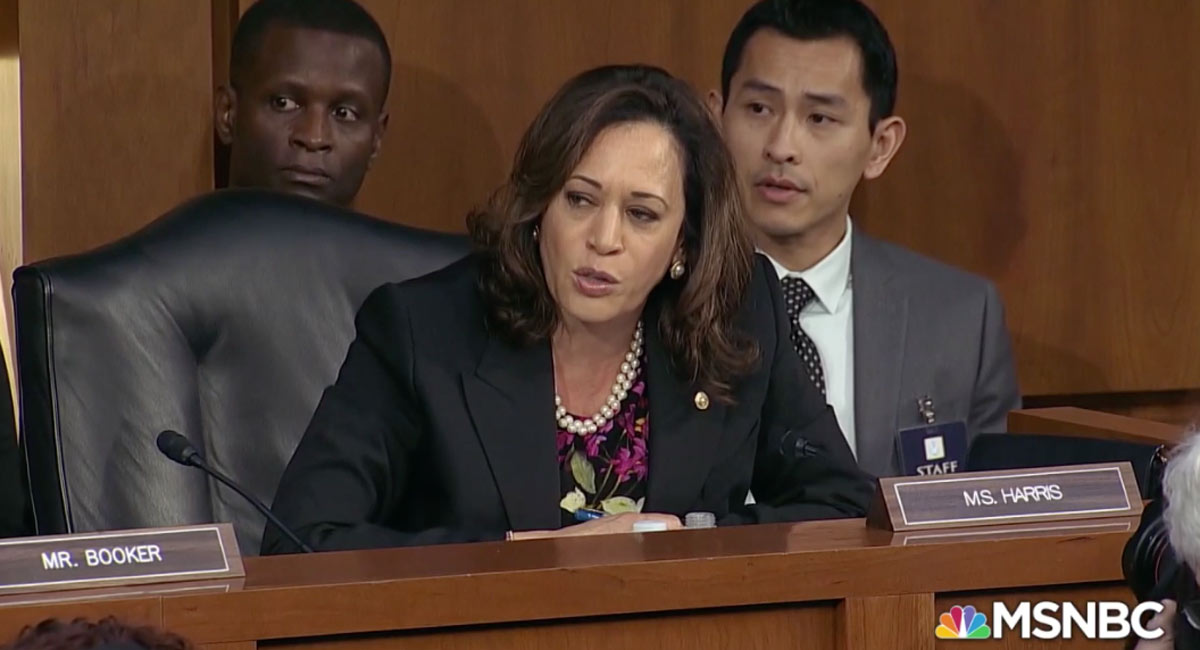Former Democratic presidential candidate Senator Kamala Harris of California recently unveiled the Black Maternal Health Momnibus Act of 2020, a nine-part piece of legislation. While at first blush, it seems this legislation could contain some things pro-lifers might be able to get behind, a closer look reveals the abortion industry’s full-throated support for it —and this should be cause for concern.
Senator Harris has a consistently pro-abortion voting record, as do co-sponsors Rep. Eleanor Holmes Norton, Rep. Ilhan Omar, Rep. Gwen Moore, and Rep. Jan Schakowsky. The legislation is also supported by unequivocally pro-choice organizations including Planned Parenthood, the American College of Obstetricians and Gynecologists (ACOG), the Center for Reproductive Rights, NARAL Pro Choice America, the Women’s Health and Family Planning Association of Texas, and Physicians for Reproductive Health. Given its ties with abortion supporters and providers, it’s important to examine the text of the proposed bill. What’s in this nine-part piece of legislation? Is it just another potential funding stream for Planned Parenthood and the abortion industry?
The first part of the legislation would involve a task force comprised of members from governmental agencies—Health and Human Services, Centers for Medicare and Medicaid Services, the Indian Health Service, the National Institutes of Health (NIH), the Centers for Disease Control and Prevention (CDC), and more—which would address issues impacting the health and wellness of pregnant and postpartum women in a wide range of categories. Another part of the legislation would address the care of incarcerated pregnant women, specifically advocating that they never be shackled while pregnant.
However, other parts of the legislation seem as though they might be funding streams for the abortion industry, such as ensuring funding goes to telehealth programs for pregnant women in rural or underserved areas. Planned Parenthood recently rolled out its telehealth program during COVID-19, and the abortion industry has been pushing for the expansion of the abortion pill through various channels, including telehealth.
READ: Legalized abortion doesn’t protect a woman from maternal mortality. It does the opposite.
Pro-lifers may be as skeptical of what’s not in the legislation as well. While the title of the legislation implies that it aims to help Black women, it only appears to identify one potential reason that Black women have higher rates of both maternal mortality (dying while pregnant or within a year of delivering) and morbidity (other health problems beginning during this same period of pregnancy or one year postpartum): “implicit or explicit bias.” Potential “bias” on the part of healthcare professionals is referenced 30 times during the document.
The legislation would mandate discrimination training for healthcare professionals and incentivize more minority women to enter healthcare, but it does not cite any evidence-based, practical interventions to actually decrease maternal mortality among Black women or other minorities. While bias may indeed be a significant contributing factor in the problem of maternal mortality among women of color, assuming that the disparities in outcomes between minority women and white women are solely caused by discriminatory care by healthcare professionals seems too simplistic.
What is never mentioned — which should come as no surprise, given the bill’s backing by pro-abortion groups — is the fact that while Black Americans make up just 12 percent of the population, Black women have 38 percent of the nation’s abortions. This legislation does not call for examining a potential correlation or causal relationship between the disproportionately high number of Black women who abort and disproportionately higher rates of maternal morbidity and mortality among Black women.
There is no funding in the legislation for research into the impact of a previous abortion or abortions on future pregnancies.
The legislation does not call for any improved reporting of abortion-related complications and deaths, which are notoriously underreported or unreported altogether in our country.
Maternal health outcomes, for minority women in particular, cannot be meaningfully improved when the abortion question is completely ignored.
“Like” Live Action News on Facebook for more pro-life news and commentary!







